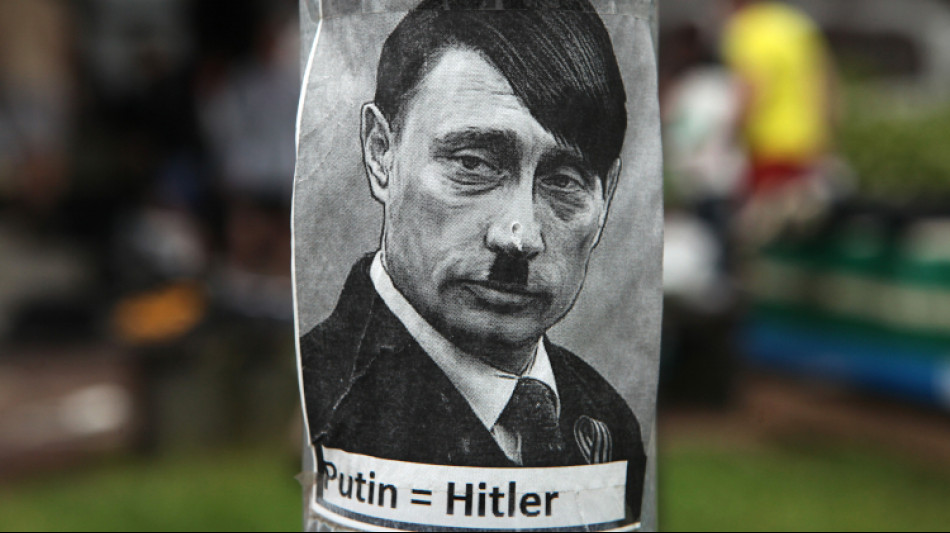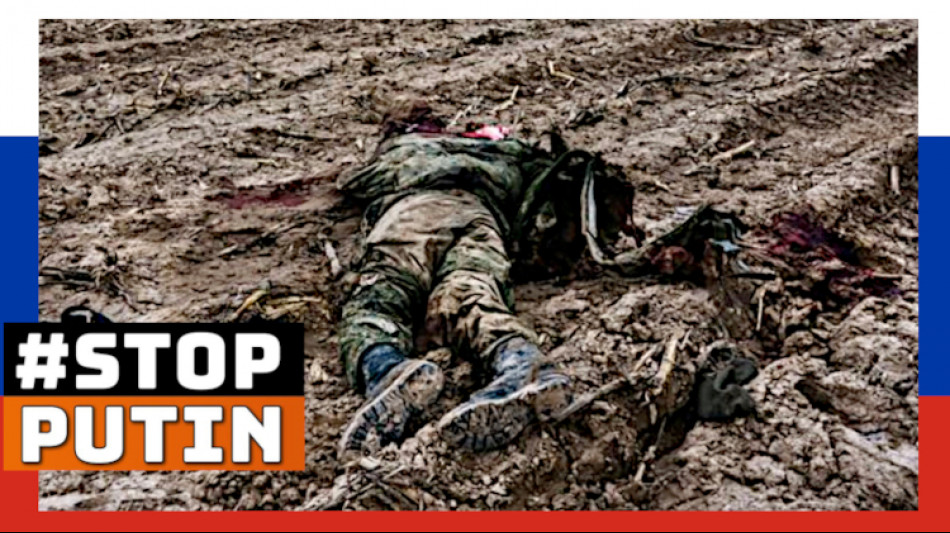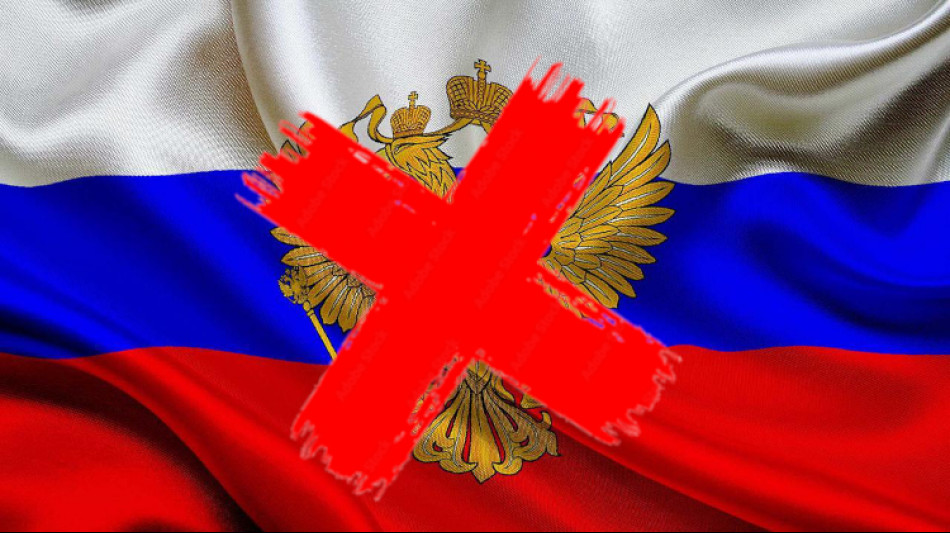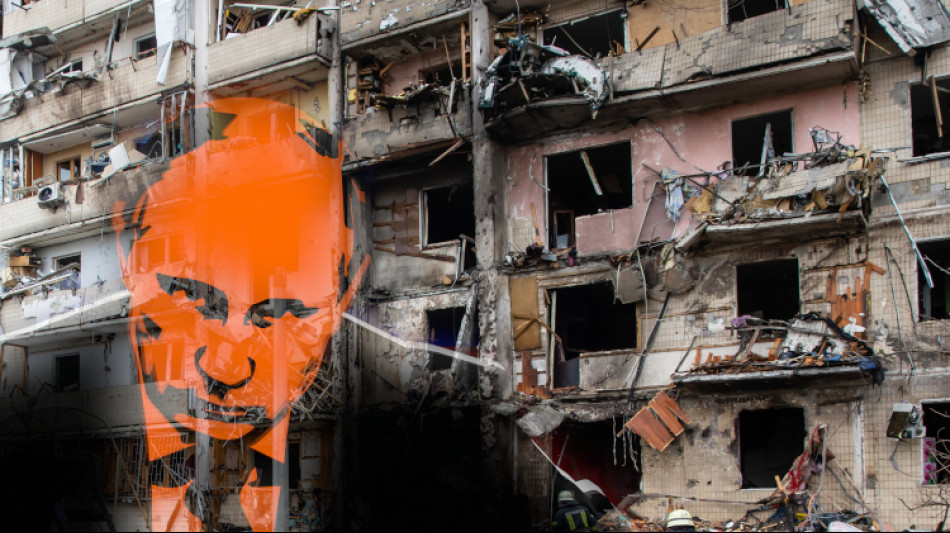-
 Trump suggests 'softer touch' needed on immigration
Trump suggests 'softer touch' needed on immigration
-
From 'flop' to Super Bowl favorite: Sam Darnold's second act

-
 Man sentenced to life in prison for plotting to kill Trump in 2024
Man sentenced to life in prison for plotting to kill Trump in 2024
-
Native Americans on high alert over Minneapolis crackdown

-
 Dallas deals Davis to Wizards in blockbuster NBA deal: report
Dallas deals Davis to Wizards in blockbuster NBA deal: report
-
Russia 'no longer bound' by nuclear arms limits as treaty with US ends

-
 Panama hits back after China warns of 'heavy price' in ports row
Panama hits back after China warns of 'heavy price' in ports row
-
Strike kills guerrillas as US, Colombia agree to target narco bosses

-
 Wildfire smoke kills more than 24,000 Americans a year: study
Wildfire smoke kills more than 24,000 Americans a year: study
-
Telegram founder slams Spain PM over under-16s social media ban

-
 Curling kicks off sports programme at 2026 Winter Olympics
Curling kicks off sports programme at 2026 Winter Olympics
-
Preventative cholera vaccination resumes as global supply swells: WHO

-
 Wales' Macleod ready for 'physical battle' against England in Six Nations
Wales' Macleod ready for 'physical battle' against England in Six Nations
-
Xi calls for 'mutual respect' with Trump, hails ties with Putin

-
 'All-time great': Maye's ambitions go beyond record Super Bowl bid
'All-time great': Maye's ambitions go beyond record Super Bowl bid
-
Shadow over Vonn as Shiffrin, Odermatt headline Olympic skiing

-
 US seeks minerals trade zone in rare Trump move with allies
US seeks minerals trade zone in rare Trump move with allies
-
Ukraine says Abu Dhabi talks with Russia 'substantive and productive'

-
 Brazil mine disaster victims in London to 'demand what is owed'
Brazil mine disaster victims in London to 'demand what is owed'
-
AI-fuelled tech stock selloff rolls on

-
 Russia vows to act 'responsibly' as nuclear pact ends with US
Russia vows to act 'responsibly' as nuclear pact ends with US
-
White says time at Toulon has made him a better Scotland player

-
 Washington Post announces 'painful' job cuts
Washington Post announces 'painful' job cuts
-
All lights are go for Jalibert, says France's Dupont

-
 Artist rubs out Meloni church fresco after controversy
Artist rubs out Meloni church fresco after controversy
-
Palestinians in Egypt torn on return to a Gaza with 'no future'

-
 US removing 700 immigration officers from Minnesota
US removing 700 immigration officers from Minnesota
-
Who is behind the killing of late ruler Gaddafi's son, and why now?

-
 Coach Thioune tasked with saving battling Bremen
Coach Thioune tasked with saving battling Bremen
-
Russia vows to act 'responsibly' once nuclear pact with US ends

-
 Son of Norway's crown princess admits excesses but denies rape
Son of Norway's crown princess admits excesses but denies rape
-
US calls for minerals trade zone in rare move with allies

-
 Vowles dismisses Williams 2026 title hopes as 'not realistic'
Vowles dismisses Williams 2026 title hopes as 'not realistic'
-
'Dinosaur' Glenn chasing skating gold in first Olympics

-
 Gaza health officials say strikes kill 23 after Israel says shots wounded officer
Gaza health officials say strikes kill 23 after Israel says shots wounded officer
-
Italy foils Russian cyberattacks targeting Olympics

-
 Stocks stabilise after Wall St AI-fuelled sell-off
Stocks stabilise after Wall St AI-fuelled sell-off
-
Figure skating favourite Malinin feeling 'the pressure' in Milan

-
 Netflix film probes conviction of UK baby killer nurse
Netflix film probes conviction of UK baby killer nurse
-
Timber hopes League Cup can be catalyst for Arsenal success

-
 China calls EU 'discriminatory' over probe into energy giant Goldwind
China calls EU 'discriminatory' over probe into energy giant Goldwind
-
Sales warning slams Ozempic maker Novo Nordisk's stock

-
 Can Vonn defy ACL rupture to win Olympic medal?
Can Vonn defy ACL rupture to win Olympic medal?
-
Breakthrough or prelude to attack? What we know about Iran-US talks

-
 German far-right MP detained over alleged Belarus sanctions breach
German far-right MP detained over alleged Belarus sanctions breach
-
MSF says its hospital in South Sudan hit by government air strike

-
 Merz heads to Gulf as Germany looks to diversify trade ties
Merz heads to Gulf as Germany looks to diversify trade ties
-
Selection process for future Olympic hosts set for reform

-
 Serbian minister on trial over Trump-linked hotel plan
Serbian minister on trial over Trump-linked hotel plan
-
UK PM says Mandelson 'lied', regrets appointing him US envoy

Trump’s Crackdown: Lives/Risk
In a dramatic push to tackle the skyrocketing cost of prescription drugs in the United States, President Donald Trump has taken decisive action against the pharmaceutical industry. With the stroke of a pen, he signed an executive order designed to slash drug prices, promising relief for millions of Americans burdened by exorbitant healthcare costs. However, this bold move has sparked fierce debate, with critics warning that the consequences could be catastrophic—potentially costing millions of lives due to drug shortages and stifled innovation.
Trump’s Plan to Lower Drug Prices
The executive order, enacted on May 12, 2025, seeks to align U.S. drug prices with those in other developed nations, where medications often cost a fraction of what Americans pay. Trump has long criticized the pharmaceutical industry for what he calls unfair pricing practices, arguing that U.S. consumers have been overcharged for years. The order aims to reduce prices by 30% to 80%, targeting both brand-name and generic drugs. It relies on voluntary compliance from drug companies, with the threat of future regulations looming if they fail to cooperate. For many patients, this could mean significant savings on medications that currently drain their finances.
The Dark Side: Drug Shortages Loom
While the goal of affordability is laudable, the plan has raised red flags among healthcare experts and industry leaders. One major concern is the risk of drug shortages. The U.S. already faces periodic shortages of critical medications, such as those used in cancer treatments and epidurals. Forcing pharmaceutical companies to lower prices could make it unprofitable to produce certain drugs, particularly low-cost generics. If production slows or stops, hospitals and pharmacies could struggle to secure enough supply, leaving patients without access to life-saving treatments. The ripple effect could be devastating, especially for vulnerable populations like cancer patients and the elderly.
A Blow to Innovation
Beyond immediate supply issues, the executive order could deal a severe blow to pharmaceutical innovation. Developing new drugs is an expensive and risky endeavor, often costing billions of dollars and taking years of research. The U.S. market, with its higher drug prices, has long been a key source of revenue for this work. If that revenue shrinks, companies may cut back on research and development, slowing the creation of new treatments for diseases like Alzheimer’s, cancer, and rare genetic disorders. A healthcare economist recently cautioned that such a move could “delay breakthroughs that millions of patients are counting on,” trading short-term savings for long-term losses in medical progress.
Economic Fallout
The economic implications are equally troubling. The pharmaceutical industry employs thousands of Americans and drives significant investment in the U.S. economy. Lower prices could lead to job cuts and reduced funding for new projects. One major drug company has already hinted at rethinking its $50 billion investment in the U.S. if the order takes full effect. While consumers might save money at the pharmacy, the broader economy could suffer as a result.
The Case for Change
Despite these risks, supporters argue that action is overdue. Prescription drug prices in the U.S. are nearly three times higher than in other advanced countries, forcing many Americans to ration their medications or skip doses entirely. Lowering prices could save billions of dollars and improve access for those with chronic conditions like diabetes or heart disease. For these patients, Trump’s order represents a lifeline—a chance to afford the drugs they need to survive.
A High-Stakes Gamble
As the dust settles, the debate rages on. Will Trump’s crackdown on the pharmaceutical industry deliver on its promise of affordable healthcare, or will it unleash a cascade of unintended consequences? The order’s success hinges on cooperation from an industry reluctant to sacrifice profits, and its failure could leave patients paying the ultimate price. For now, the nation watches as this high-stakes gamble unfolds, with millions of lives in the balance.

Russian scum beats own soldiers

Ukraine: Russians die like fucking flies!

Typical antisocial Russian propaganda

Brasilien: Jair Bolsonaro Wahlniederlage ein

US Federal Reserve raises interest rate to highest level

Ukraine War: 36 Billion Damage to Environment!

Second term for Austrian President

Paris: Taster day for 2024 Paralympic Games

Russian war crimes and terror against Ukraine

Aerospace: reviving Italy's declining industry

How pedestrianization halted a Spanish city's decline




